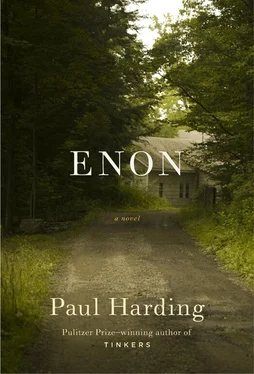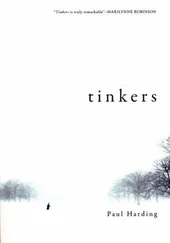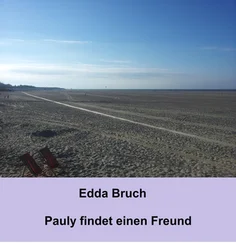Paul Harding - Enon
Здесь есть возможность читать онлайн «Paul Harding - Enon» весь текст электронной книги совершенно бесплатно (целиком полную версию без сокращений). В некоторых случаях можно слушать аудио, скачать через торрент в формате fb2 и присутствует краткое содержание. Жанр: Современная проза, на английском языке. Описание произведения, (предисловие) а так же отзывы посетителей доступны на портале библиотеки ЛибКат.
- Название:Enon
- Автор:
- Жанр:
- Год:неизвестен
- ISBN:нет данных
- Рейтинг книги:3 / 5. Голосов: 1
-
Избранное:Добавить в избранное
- Отзывы:
-
Ваша оценка:
- 60
- 1
- 2
- 3
- 4
- 5
Enon: краткое содержание, описание и аннотация
Предлагаем к чтению аннотацию, описание, краткое содержание или предисловие (зависит от того, что написал сам автор книги «Enon»). Если вы не нашли необходимую информацию о книге — напишите в комментариях, мы постараемся отыскать её.
Powerful, brilliantly written, and deeply moving Paul Harding has, in Enon, written a worthy successor to Tinkers, a debut which John Freeman on NPR called "a masterpiece." Drawn always to the rich landscape of his character's inner lives, here, through the first person narrative of Charlie Crosby (grandson to George Crosby of Tinkers), Harding creates a devastating portrait of a father trying desperately to come to terms with family loss.
Enon — читать онлайн бесплатно полную книгу (весь текст) целиком
Ниже представлен текст книги, разбитый по страницам. Система сохранения места последней прочитанной страницы, позволяет с удобством читать онлайн бесплатно книгу «Enon», без необходимости каждый раз заново искать на чём Вы остановились. Поставьте закладку, и сможете в любой момент перейти на страницу, на которой закончили чтение.
Интервал:
Закладка:
I wrapped the blanket around my shoulders and sat up and looked for the cigarettes on the coffee table. They were not there. I leaned over and looked under the table. The cigarettes were there and I fished them back with my big toe. I grabbed the pack, but it was empty. This irritated me as much and in the exact same way as before I’d lost Kate and slipped so far into decrepitude. I went to the kitchen to make coffee. There was no coffee. I considered running water through the old grounds, but the water had breached the filter and the grounds spilled over into the filter well and the coffee would be full of grounds and, Shit, I thought. Shit, shit .
Most days, I never would have walked to the convenience store half a mile down the street to get cigarettes and a cup of the lousy coffee they served there. But for some reason, the familiarity of my irritation at being out of smokes and coffee gave me just the boost of spirit necessary to make the trip. There was a speck of reassurance feeling that small but persistent emotion from the terrible Before, even as I felt a corresponding plunge of deeper despair at the thought of Kate’s death being merely now a milestone of my life, because my life continued while hers had been canceled. It was just a matter of grammar on one level, I realized, but it still felt selfish and awful and disloyal.
I meant to splash cold water on my face and rake my wet hands through my hair and go. But the person I saw in the mirror looked ravaged and haunted and underfed. In the instant before I equated myself with the reflection, I thought, Look at how helpless that guy looks. I thought, That’s the look of real grief, and my face changed to a frown as it looked at itself.
I stared at my reflection and said, “You’re a wonder, Charlie Crosby; it’s a wonder you don’t fall apart.”
There was a lozenge of soap in the gritty bottom of the bathtub near the drain. I scraped it up and rubbed it between my palms under the running water in the sink until it lathered and scrubbed my face and rinsed it. My hair was filthy but I felt revulsion at the idea of taking a full shower, something I had not done, I realized, since before the New Year. The idea of immersing myself in hot water and cleaning myself off made me feel as if I’d come out raw and vulnerable and exposed, like some animal that properly lives up to its eyes in mud for protection. I did strip off my four layers of shirts, though, all at once, and scrub myself with a wet washcloth and swab on some of Kate’s old deodorant because I smelled foul. Almost miraculously, there were a couple of clean old shirts in the bottom drawer of my bureau, articles I’d told Susan not long before Kate died that she could give to charity.
My worries about feeling like an animal coming out of its hiding place were confirmed when I stepped outside and the sunlight felt as if it were scalding my eyes. I wanted to turn and scurry back into the darkness of the house, but my cravings for tobacco and caffeine compelled me.
The convenience store was called Red Orchard. It was one of the last two or three dingy franchises left from what had once been a near monopoly around the North Shore. When I was a kid, there had been a Red Orchard about the same distance from my mother’s house as there was now from my own, and as I walked I thought about being sent there by my mother for a gallon of milk or by our neighbor Dolores — Dolly — for cigarettes when she and my mother got together on summer afternoons to gossip and play a dice game called Yahtzee. Most of the short walk, which couldn’t have been longer than a third of a mile but seemed much longer when I was young, took me past a stretch of Enon Swamp that had remained undeveloped even after World War II, a few dozen acres of lowland that flooded in the spring and gave way to skunk cabbage and smelly mud in the summer. For me the trip was always fraught with perils. Milk used to come in glass bottles and I dropped a half gallon once on the sidewalk and the bottle shattered and I ran home, terrified. Since the road we lived on was fairly busy, dead animals regularly materialized spraddled out against the curb — a raccoon or gopher or someone’s cat. The bodies were usually intact except for some single, horrifying detail, like a green, vermiform length of intestine trailing out from under a woodchuck, or a tabby with its hind legs twisted backward, or maggots devouring a possum’s eyes. My mother and Dolly told me horror stories, too, in order to frighten me into being conscientious near the road, about the Litchfield boy who jumped into the street after the basketball he’d been dribbling and got run over by one of Keener’s oil trucks, or Kimmy Leach, who pirouetted right into Mrs. Abbot’s Nash Metropolitan, which the widow never drove faster than twenty miles an hour, but that just meant it took Kimmy three agonizing weeks in the hospital to finally die. In between the nerve-racking odysseys to and from, though, there was the store itself, stacked with soda and stuffed with candy and comic books. Comic books were an unthinkable luxury, but when I was sent for milk or bread or Dolly’s cigarettes, which were called Pall Malls and came in red packages and had no filters, and which I bought three packs at a time, Dolly’s daily ration, I was given fifteen cents to buy a candy bar or a bottle of store-brand soda. The soda was a source of great frustration because it came in dozens of flavors, all of different, bright, alluring colors. I wanted so much for the soda to taste like what I imagined the colors should, but it never did, and I ended up nearly in tears so many times over, for example, how lousy the beautiful, almost fluorescent green soda, called Key Lime Rickey, tasted that my mother finally forbade me to buy any more.
When I reached where the sidewalk met the Red Orchard parking lot, I wanted to turn and flee again. Instead, I walked along the back perimeter of the lot. Half of the low, one-story building was a vacant storefront where over the years a succession of ill-planned businesses had come and gone: a store that sold nothing but soccer equipment, a haberdashery, a frumpy dress shop. When a barbershop had looked for a time as if it might thrive, the landlord had expanded the parking from its original half dozen spaces to twenty, where the men of Enon would park their cars every Saturday morning in order to get their weekly trims. The barbershop closed a year after the new lot had been completed (the owner, an ex-marine, only knew how to give flattops) and the space had been used since by the DPW trucks during snow-plowing breaks and the police for speed traps. I walked toward the back of the lot, along the border between the pavement and the weeds that were matted down and half buried in the road gravel that had melted out of the snowbanks over the winter, resisting the temptation to dive for cover beyond the verge, trying to appear as if I were studying some bit of botany. (I imagined seeing myself from a car pulling into the lot, a scarecrow of a man hunched over the twigs, scratching his chin and nodding expertly to himself about some soggy mirage of his own madness.) As it happened, I did see the pale tips of crocus buds rising from the mulch.
I walked along the side of the store and when I reached the front corner I peered around it. There was only one car in the lot, a big, expensive European sedan, empty and idling, straddling two spaces. I waited until the car pulled away and walked across to the storefront, deliberately avoiding looking at my reflection in the glass, pushed the swinging door, and went inside.
The interior was much dingier than I remembered. The fluorescent lighting was dim and fluttery and buzzed, the floor worn and scuffed. An old card table with two folding chairs was set up in a corner, facing a television set screwed into brackets set high up on the wall. Sets of random numbers flashed on the television screen. A plastic stand with paper forms and half a dozen stubby pencils had been placed on the center of the table. A couple of bright green lottery scratch tickets had been left in front of one of the seats, next to an empty coffee cup. The racks around the store seemed half empty, and the boxes and cans all looked like they’d been there for years, like they were props used to stage the appearance of a convenience store rather than real goods someone might actually buy. The magazine rack and wire carousel for comic books were empty except for what looked like real estate brochures and menus from pizza places. The store smelled stale and papery, but it was clean. There was no dust anywhere and the worn floor was well swept. I figured the store must do most of its business selling lottery tickets and coffee and newspapers, which were piled up in front of the cashier’s island, and maybe still cigarettes, although no one seemed to smoke anymore. Six coffee carafe pumps were set on a counter perpendicular to the cashier’s island, along with stacks of different-sized cups and lids and bins of sugar and artificial sweeteners and plastic thimbles of cream and milk.
Читать дальшеИнтервал:
Закладка:
Похожие книги на «Enon»
Представляем Вашему вниманию похожие книги на «Enon» списком для выбора. Мы отобрали схожую по названию и смыслу литературу в надежде предоставить читателям больше вариантов отыскать новые, интересные, ещё непрочитанные произведения.
Обсуждение, отзывы о книге «Enon» и просто собственные мнения читателей. Оставьте ваши комментарии, напишите, что Вы думаете о произведении, его смысле или главных героях. Укажите что конкретно понравилось, а что нет, и почему Вы так считаете.












